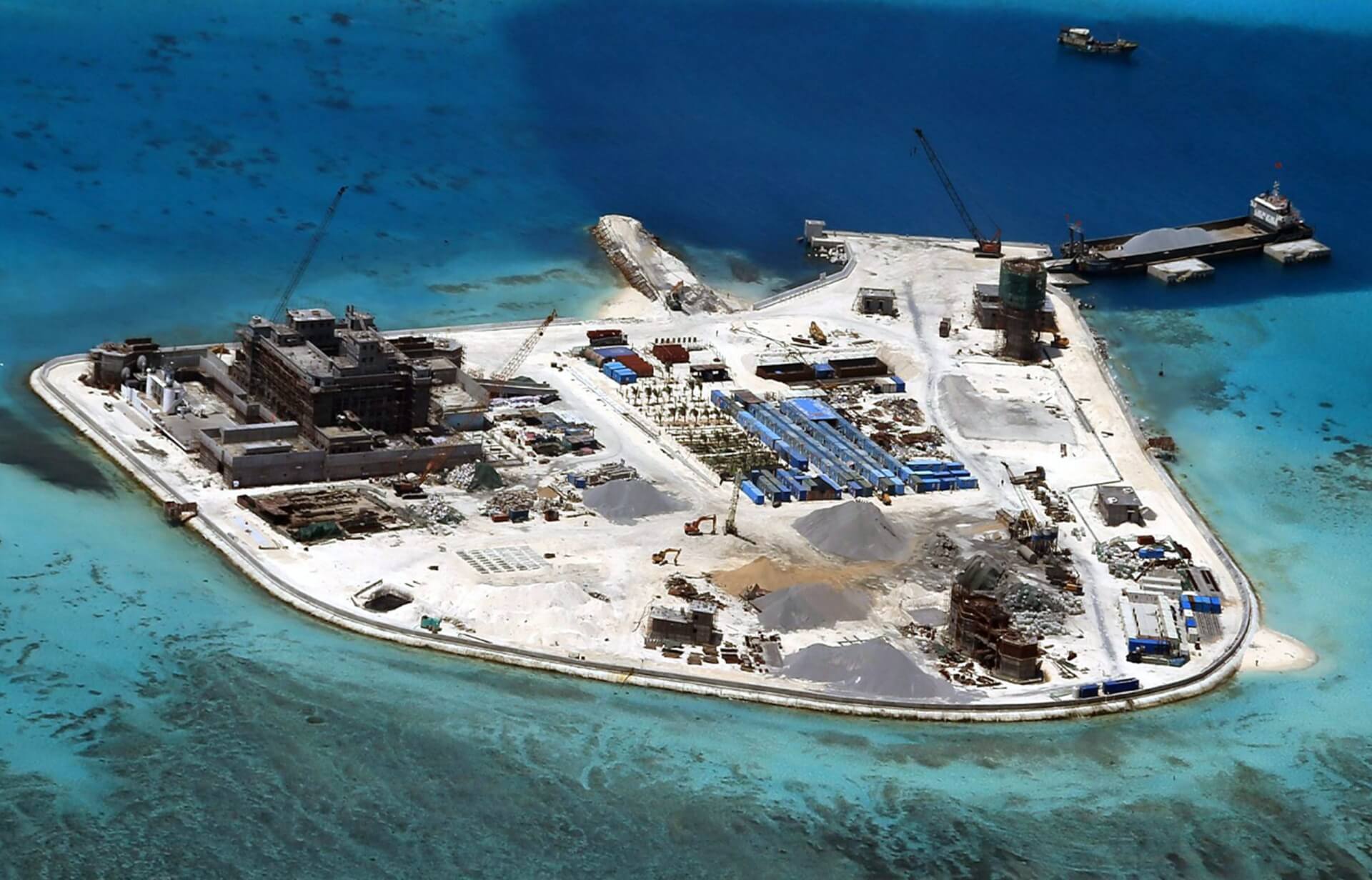The United States (US) imposed sanctions on 24 state-owned Chinese companies that allegedly participated in building disputed artificial islands in the South China Sea (SCS), adding fuel to already tense relations between Washington and Beijing. US Commerce Secretary Wilbur Ross said, “The United States, China’s neighbours, and the international community have rebuked the CCP’s sovereignty claims to the South China Sea and have condemned the building of artificial islands for the Chinese military.” Ross added that the 24 companies under sanctions “have played a significant role in China’s provocative construction of these artificial islands and must be held accountable”.
The sanctions will apply to a range of state-owned enterprises, including China Communications Construction Co. (CCCC), a leading contractor for Chinese leader Xi Jinping’s Belt and Road Initiative (BRI) to develop infrastructure and trade links across Asia, Africa, and beyond. Five of CCCC’s subsidiaries are also on the list, restricting American companies supplying US-origin technology to them without a license.
The latest iteration of sanctions appears to be appears to be borne out of Washington’s revised position on the SCS dispute. US Secretary of State Mike Pompeo recently reaffirmed Washington’s commitment to SCS arbitration, and, unlike in the past, detailed the American position on specific SCS disputes, including the Scarborough Reef and the Spratly Islands, and even affirmed his support for Vietnam. The Secretary of State underscored the US’ intent of not allowing Beijing to treat the SCS as its “maritime empire”, and, apart from slapping sanctions, Pompeo also announced that visa restrictions would be placed on individuals “responsible or complicit” in the building illegal islands in the contested waters. Following the US’ hardened position on the SCS, China reached out to countries in Southeast Asia who are party to the dispute, wherein a Chinese official urged littoral states to resume negotiations on the code of conduct pertaining to the dispute “as soon as possible”.
The SCS is witnessing increased military activities from both China and the US. The former has been conducting two sets of naval drills in the past two months, while the latter conducted naval exercises in July. In addition, China reportedly fired two missiles, including one dubbed an “aircraft-carrier killer”, into the SCS. Furthermore, the Chinse military fired an intermediate-range ballistic missile, the DF-26B, from Qinghai Province and another medium-range ballistic missile, DF-21D, from Zhejiang Province. These missile launches were in response to a US spy plane entering the “no-fly zone” area during Chinese military drills. China insists that the US sent an RC-135S ballistic missile-detection plane and a U-2 high-altitude aircraft on two occasions to spy on the People Liberation Army (PLA) drills in the SCS. In fact, Chinese state-owned media outlet The Global Times alleges that the US conducted aerial reconnaissance both on Tuesday and Wednesday.
Chinese military drills in SCS are also causing tensions with ASEAN nations. Vietnam, for instance, accused China of violating its sovereignty by conducting military drills near the Paracel Islands, where it has competing claims. Vietnam’s foreign ministry official, Le Thi Thu Hang, said, “China’s repeated military exercises in [the Paracel Islands] violate Vietnam’s sovereignty, complicating negotiations for a Code of Conduct of Parties in the South China Sea between China and ASEAN.”
In other developments concerning the SCS dispute, Chinese Ambassador to Hungary Duan Jielong was elected as a member of the International Tribunal for the Law of the Sea. According to China, the high count of votes the Ambassador received reflected the international community’s recognition of China’s claims and actions on maritime issues. The US, however, opposed the Chinese candidate, arguing that Beijing violated international law in the SCS.
US Imposes Sanctions on 24 Chinese Firms Involved in SCS Island Construction Activities
Amid increasing tensions, China fired two missiles against US spy-planes in SCS waters.
August 27, 2020

An aerial view of construction at Mabini/Johnson Reef by China in the disputed Spratly Islands. SOURCE: ARMED FORCES OF THE PHILIPPINES
